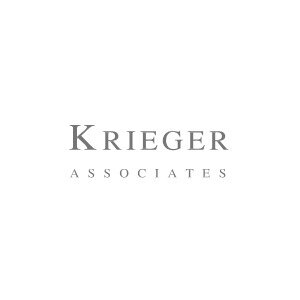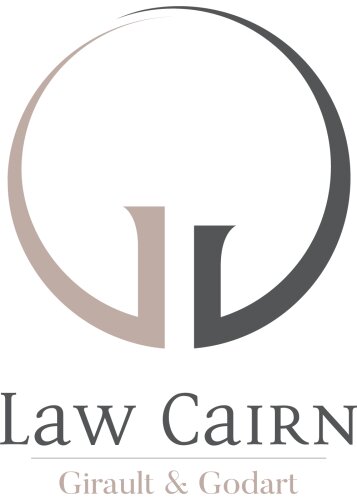Best Due Diligence Lawyers in Luxembourg
Share your needs with us, get contacted by law firms.
Free. Takes 2 min.
Or refine your search by selecting a city:
List of the best lawyers in Luxembourg
About Due Diligence Law in Luxembourg
Due Diligence is a critical procedure in Luxembourg that entails a comprehensive appraisal of a business or investment opportunity before proceeding with an agreement or transaction. In the context of Luxembourg, a major European financial hub, due diligence often revolves around financial, legal, tax, and operational aspects. Companies and investors conduct due diligence to ensure compliance with local laws, assess risks, and validate the integrity of potential deals. The rigorous regulatory environment in Luxembourg mandates a thorough understanding of these aspects to safeguard against fraud, misrepresentation, or unexpected liabilities.
Why You May Need a Lawyer
Engaging a lawyer for due diligence in Luxembourg is advisable in several situations. For instance, if you're involved in mergers and acquisitions (M&A), a legal expert can help analyze contracts, identify liabilities, and ensure regulatory compliance. Similarly, if you're considering a real estate investment, a lawyer can verify property titles, zoning laws, and tax implications. Individuals dealing with complex financial structures or those new to the Luxembourg market can benefit from legal expertise to navigate local regulations, protect their interests, and optimize transaction terms.
Local Laws Overview
Luxembourg's legal framework for due diligence is shaped by its position as a financial hub and its commitment to transparency and compliance. Key regulations include the Luxembourg Commercial Code, the Law of 12 November 2004 on the fight against money laundering and terrorist financing, and various EU directives that Luxembourg incorporates into its national legislation. Understanding these laws is essential for conducting due diligence, especially concerning KYC (know your customer) protocols, AML (anti-money laundering) requirements, and the GDPR (General Data Protection Regulation) for data protection. Additionally, industry-specific regulations may apply, necessitating tailored due diligence approaches in sectors like finance, real estate, and insurance.
Frequently Asked Questions
What is due diligence?
Due diligence is the investigation or audit of a potential investment, business transaction, or partnership to confirm all relevant facts and financial information.
Why is due diligence important?
It helps in minimizing risks, ensuring compliance with laws, and making informed decisions in business transactions or investments like mergers, acquisitions, and real estate purchases.
What are the types of due diligence?
Common types include legal, financial, commercial, operational, tax, and environmental due diligence, each focusing on different aspects of the business or transaction.
Who conducts due diligence?
Due diligence is typically conducted by potential buyers, investors, or third-party professionals such as lawyers, accountants, and consultants.
How long does a due diligence process take?
The duration can vary depending on the complexity of the transaction but usually ranges from 2 weeks to several months.
What documents are needed for due diligence?
Documents often required include financial statements, tax returns, contracts, corporate bylaws, employee records, and compliance certificates.
Are there specific due diligence requirements in Luxembourg?
Yes, Luxembourg has specific requirements around compliance with EU laws, AML regulations, and local corporate governance standards.
How can a lawyer assist with due diligence?
A lawyer can provide expert analysis, identify potential liabilities, ensure legal and regulatory compliance, and draft essential transaction documents.
What risks can inadequate due diligence present?
Inadequate due diligence can lead to financial losses, unforeseen liabilities, regulatory penalties, and damage to reputation.
Can due diligence affect the terms of a deal?
Yes, findings from due diligence can influence deal valuations, contract terms, indemnities, and contingencies.
Additional Resources
For further assistance, consider consulting the following resources:
- Commission de Surveillance du Secteur Financier (CSSF) for financial regulation guidance
- Luxembourg Chamber of Commerce for business resources
- Luxembourg Bar Association for finding legal professionals
- Official government portal of Luxembourg for access to legislation and regulatory updates
Next Steps
If you require legal assistance in due diligence in Luxembourg, consider the following steps:
- Identify and articulate your specific due diligence needs or concerns.
- Research and contact a lawyer or law firm specializing in due diligence within your sector.
- Prepare necessary documents and background information to provide your lawyer with a comprehensive understanding of your transaction or investment.
- Discuss timelines, costs, and expectations with your lawyer to ensure alignment on objectives and procedures.
Lawzana helps you find the best lawyers and law firms in Luxembourg through a curated and pre-screened list of qualified legal professionals. Our platform offers rankings and detailed profiles of attorneys and law firms, allowing you to compare based on practice areas, including Due Diligence, experience, and client feedback.
Each profile includes a description of the firm's areas of practice, client reviews, team members and partners, year of establishment, spoken languages, office locations, contact information, social media presence, and any published articles or resources. Most firms on our platform speak English and are experienced in both local and international legal matters.
Get a quote from top-rated law firms in Luxembourg — quickly, securely, and without unnecessary hassle.
Disclaimer:
The information provided on this page is for general informational purposes only and does not constitute legal advice. While we strive to ensure the accuracy and relevance of the content, legal information may change over time, and interpretations of the law can vary. You should always consult with a qualified legal professional for advice specific to your situation.
We disclaim all liability for actions taken or not taken based on the content of this page. If you believe any information is incorrect or outdated, please contact us, and we will review and update it where appropriate.
Browse due diligence law firms by city in Luxembourg
Refine your search by selecting a city.














